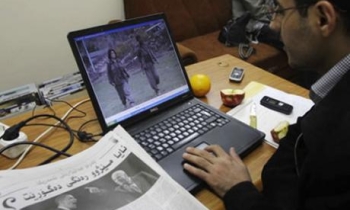The liberal coverage of Islam by a large section of the international media is both a negative and positive phenomenon. It is apparent that the media provide fora for discussions on the meaning, scope and applicability of Islam. And, to a large extent, the discussants, among whom can be found Muslims, always attempt to explore the various arguments over the multifarious definitions, essence and utilization of the religion.
Undisputably, the continuous mutilation of certain key Islamic concepts is as much detrimental as the enlargement of the scope of discussions is beneficial to the religion. The manner in which the apologists of secularism and such other petty concepts as legalism, materialism and consumerism infiltrate the media and influence their contents helps to, on the one hand, enhance the universality of Islam and on the other hand, aggravate the doctrinal misunderstanding and attendant unhealthy debate even among Muslim groups.
Whatever the media churn out either in terms of reports, analyses or even entertainment that relate to Islam are direct products of the cross-ventilation and cross-fertilisation of views and ideas among Islamic scholars and secularists. Certain sections of the media continue to promote and even adopt the viewpoints of such scholars and secular intellectuals.
The comprehensibility, comprehensiveness and co-ordination of Islam should serve as a basis for proper understanding of the religion and articulation of viewpoints that will seek to foster greater understanding among Muslims and also between Muslims and the adherents of other religions for the benefit of mankind. It is either the ignorance of the Muslims or the arrogance of non-Muslims or both that make the proper comprehension and utilisation of Islam at some places difficult.
Ordinarily, there should not be any conflict between Islam and journalism. Both up-hold the sanctity of truth, balance and societal well-being. The on-going maltreatment of Islam by some journalists is, therefore, a misnomer.
For example, the totality of Islam predicates on chains of revelations, narrations and interpretations. And, across periods, Islamic scholars have perfected strategies for the preservation of the authenticity and reliability of the injunctions of the religion as contained in the Holy Quran, Hadith of the Holy Prophet Muhammad (SAW) and other books on theology authored by the scholars.
This indicates that Islam attaches great importance to the correctness and relevance of information. Any piece of information can only be said to be valid if both its source and content are not faulty. This is what has enabled the religion to successfully avoid discrepancies and distortions for the more than 14 centuries it has been in existence.
It is absolutely the knowledge of Islamic prohibitions against all acts that border on libel, slander, malice, instigation and provocation that makes most Muslim journalists all over the world to refrain from the fabrication or concoction of stories and analyses that are likely to injure the sensibilities of other people. And this tallies with the ethics of journalism that prescribe for the observance of factuality, objectivity and display of sense of responsibility in the course of discharging duties.
Muslims are generally enjoined to make only such statements that are beneficial to all mankind. This, clearly, implies that Muslim journalists are expected to, as a matter of religious duty, ensure that whatever information they gather and disseminate to the public will contribute to the peaceful co-existence and harmonious inter-relationship among the various segments of the society.
Journalists in the developing countries are confronted with peculiar problems. They have the incidents of hunger, illiteracy, diseases, as well as communal and religious crises, which are all manifestations of bad leadership, to worry about. The dearth of effective work-tools is another ugly reality that aggravates the dilemma of journalists in the developing world.
In fact, the inherent heterogeneity, under-development and instability as represented in constant political upheavals mainly sponsored by power seekers and orchestrated by restive youths have continued to constitute an enormous challenge to Muslim journalists in most of the developing countries. It is, of course, the religious injunctions in respect of caution, restraint and compassion that make the Muslim journalists to conduct themselves in a manner that is both professionally impressive and socially progressive.
The attitudes of some non-Muslim practitioners of journalism at both local and international levels smack of absolute irresponsibility and crass opportunism. Their perennial attacks on Islam and other well-cherished traditions of the people are quite indicative of their penchant for the violation of the ethics of a profession some of us spent our valuable years to study.
Some of them seem to have the dangerous belief that journalism is such a profession that is either indifferent to religion, nay Islam, or even antagonistic to it. They, therefore, cheaply resort to such acts that symbolise a resolute bid to disgrace the religion and its adherents.
But Islam as a living force has its own peculiar characters. It grows faster and makes loftier meanings to many more minds at a time when there is either a clandestine or obvious attempt to neutralise or even kill it. Muslims develop resistance quite easily at a time of confrontation with any opposing physical, psychological or intellectual force.
The elements of dogmatism, scholarship and intellectualism that constitute the basic components of Islam are always protective of the religion against the machinations of its saboteurs. They are mechanisms that make it possible for the Muslims to appropriately confront challenges, react to insults and repeal attacks.
Certainly, Muslim journalists will never indulge in the practice of gutter journalism because of the well-defined religious prohibitions against it. Our total subscription to the noble idea of genuine service to humanity as enjoined by our religion shall continue to deter us from indulging in the dirty job.
This means that Muslim journalists must always consider it a duty to respect the religious beliefs and views of other people, collect and disseminate information that will bring about greater understanding among people of diverse religious and cultural backgrounds and also highlight the abundant resources as well as opportunities vis-à-vis the heightening deprivation in the society. This is the only kind of journalistic approach that will salvage a pluralistic and developing country like Nigeria.
At the same time, Muslim journalists will have no excuse to allow the ceaseless attacks on the religion by people who are terribly deficient in both thinking and actions who, most often, employ warped language against our sensibilities. Any such action will attract reaction from the Muslim journalists.
At this juncture, the attention of Muslim journalists and members of the elite class is drawn to the indispensability of the media in the unstoppable process of political growth in Nigeria in particular and the world in general. It is erroneous to conclude that the ownership, control and management of media are the exclusive rights of the Muslims, which the present trend in the media industry seems to suggest. Islam thrives in an atmosphere of free flow of information that is both positive and objective, which can only be guaranteed when Muslims become the owners and managers of strong media outfits at different levels.
This is what will provide our capable Muslim journalists with the strength to rise up in defence of our religion so that the likes of Isioma Daniel will begin to know and accept their professional weaknesses. The whole world will be safer and saner without them and their gutter journalism. I swear.









